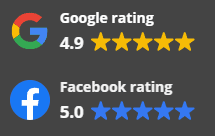
At an interview, recruiters will ask you questions to gauge a better understanding of your skillset, personality and fit within their company. One of the most common questions recruiters ask is “what’s your current salary?”. By asking this question, they can make you an offer closer to your current salary. Most often, this will be substantially less than what they initially planned on offering. Women and ethnic minorities earn less than men historically. This means questions like this ensure they remain on lower salaries, contributing to the gender pay gap.
In an attempt to shrink the gender pay gap, some US states banned using salary history questions in recruitment processes. Organisations such as The Fawcett Society have been petitioning in support of introducing the ban in the UK. On International Women’s Day this year, the UK government acknowledged the issue and announced a new initiative.
The government launched a new pilot scheme whereby participating organisations will stop asking salary history related questions. Additionally, participating companies will need to be more transparent about salaries in their job listings as well. By working with the government, these firms will help develop and pilot new methodologies. Through these methods, companies will be able to provide salary information during the recruitment process whilst stepping away from their current reliance on salary history. Upon the success of the pilot scheme, other organisations will be able to adopt these methods and help close the gender pay gap.
How does it contribute to the gender pay gap?
For a variety of reasons, women may have a low salary now or in the past. Sometimes women undertake caregiving responsibilities which may lead to them predominately working part-time. Additionally, women tend to work for non-profit organisations or in educational sectors that usually pay lower salaries, or they may have been discriminated against in the past. Asking salary history questions can then mean that these low past salaries follow women throughout their careers.
When receiving salary history questions, women often lose their confidence in negotiating for better pay. Worries around their expertise come into the equation as they begin to associate their previous salaries with their worth. We want women to be able to negotiate their salaries on a fairer basis. Therefore, not asking about salary history opens up fairer negotiations and provides more wage increases for professional women.
AtAllstaff Recruitment, everything we do is governed by our core values – honesty, integrity, quality and transparency. Throughout the recruitment process, we remain transparent with both our candidates and clients alike. Discussions of our candidate’s salary expectations and the salary the employer is offering occur prior to us sharing their details with our client. We don’t discuss our candidate’s salary history with our clients, only the salary our candidate is looking for. We ensure that we fill all our vacancies with candidates that possess the key skills to do the role and are here to help negotiate better offers.
To find out more about our candidate and client services why not get in touch? If you are looking for a new job, be sure to check our vacancies page or submit your CV today.


